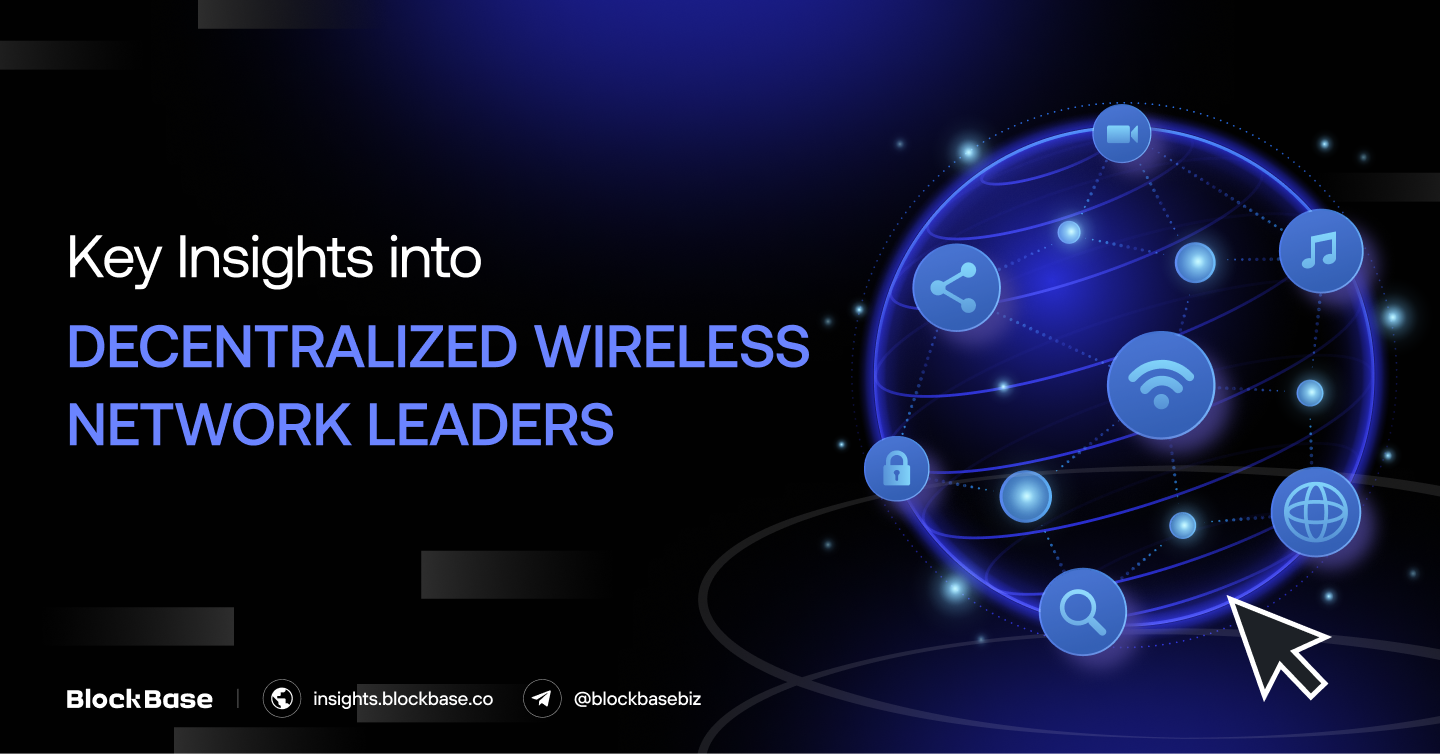The decentralized wireless (DeWi) industry is rapidly evolving, with several prominent projects leading the charge toward redefining global connectivity. Roam, Helium Mobile, Wayru, and Wi-Fi Dabba stand out for their innovative approaches and unique contributions. This article explores each of these projects, analyzing their visions, technological infrastructures, community engagements, and business models. The goal is to highlight how these projects differ and how they each contribute to the broader Web3 ecosystem.
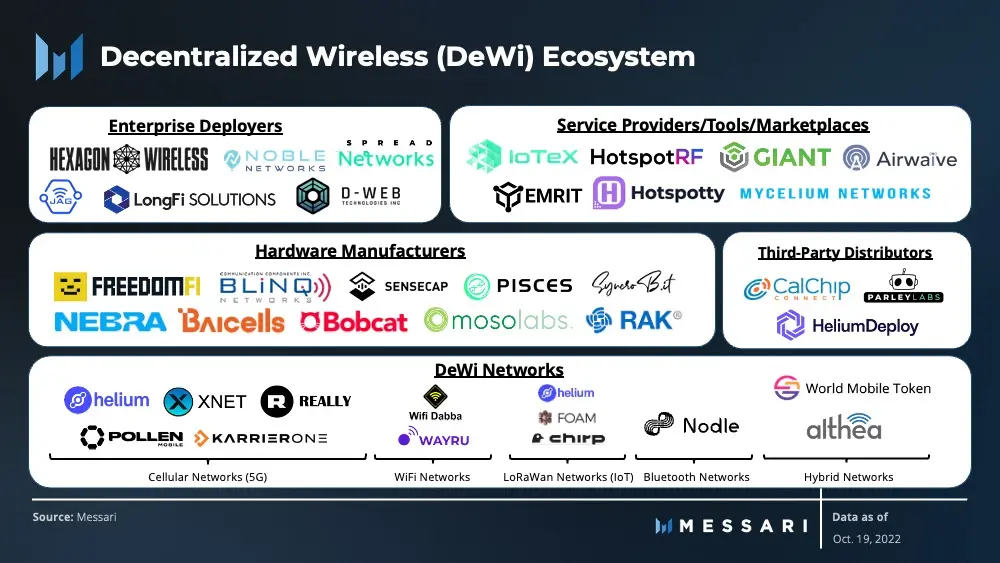
1. Roam: Leading the Way in Global Decentralized Wireless Roaming
Roam is at the forefront of creating a global decentralized WiFi roaming network. Its mission is to simplify the user experience across various WiFi networks, leveraging decentralized identities (DID) and verifiable credentials (VC) to eliminate the need for repeated logins, password sharing, and multiple registrations during travel. Roam has grown significantly, boasting over 330,000 proprietary nodes and nearly 470,000 app users, supporting more than 3.5 million global OpenRoaming nodes.
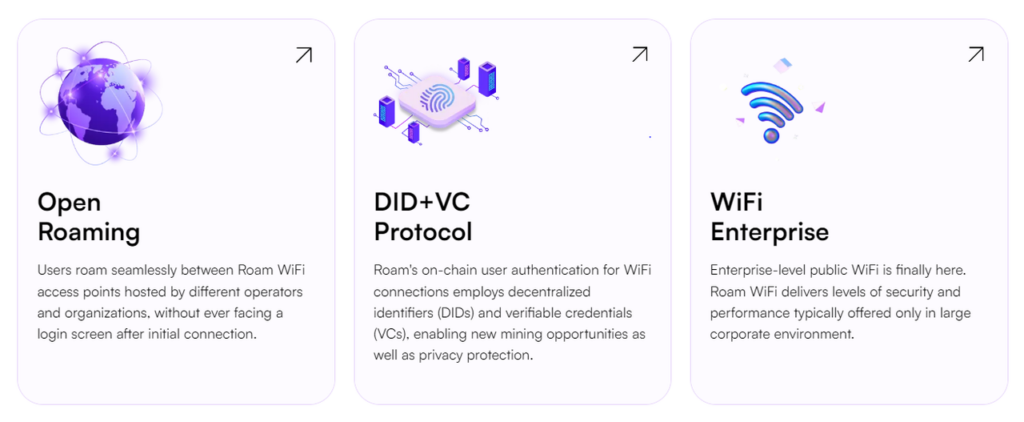
1.1. Technological Infrastructure
Roam’s network is built on advanced Web 3.0 technologies, which enhance both the security and convenience of WiFi roaming. It supports OpenRoaming, a technology organized by the Wireless Broadband Alliance (WBA) that allows devices to seamlessly switch between WiFi networks globally. Roam’s network also adheres to strict data privacy protocols, ensuring compliance with regulatory standards and providing a secure environment for Web3 native applications.
1.2. Business Model and Valuation
Roam’s business model unfolds in three phases. Initially, the focus is on hardware sales and the expansion of network nodes, including the sale of the Roam Rainier MAX60 Wi-Fi router miner. As the network grows, Roam plans to offer 3W data services to various Web3 projects. In the long term, the company envisions providing AI+DePIN infrastructure services. According to its tokenomics plan, Roam will issue 1 billion ROAM tokens, each valued at $0.20, giving the company an estimated valuation of $200 million.
2. Helium Mobile: Disrupting Telecom Decentralized Wireless with Web3 Technology
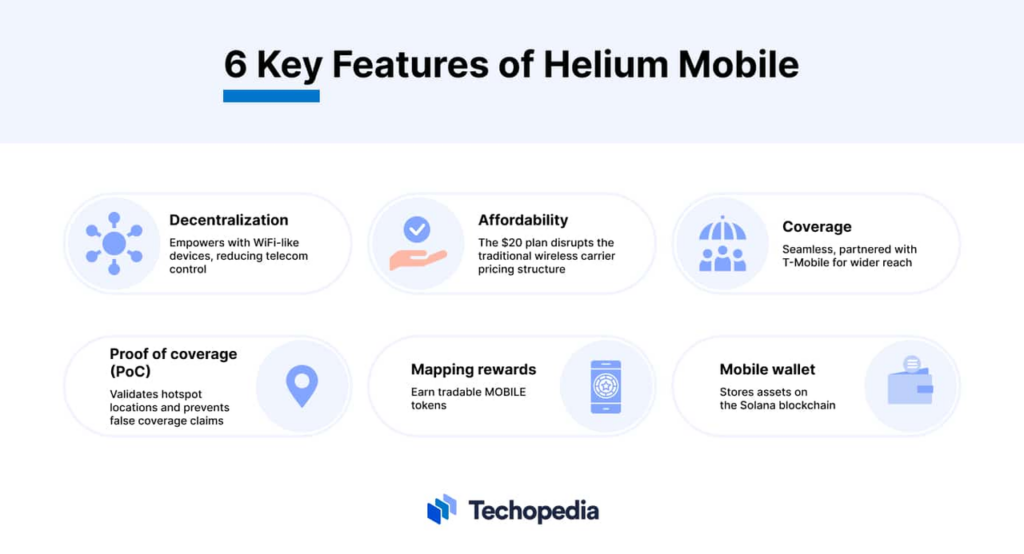
2.1. Business Model
Helium Mobile operates with a dual business model. The project offers 5G mobile plans at significantly lower prices than traditional telecom providers, positioning itself as a cost-effective alternative. Additionally, Helium Mobile enables users to set up their base stations in areas with poor signal, rewarding them with MOBILE tokens for becoming network hotspots. This model not only democratizes network coverage but also incentivizes user participation in network expansion.
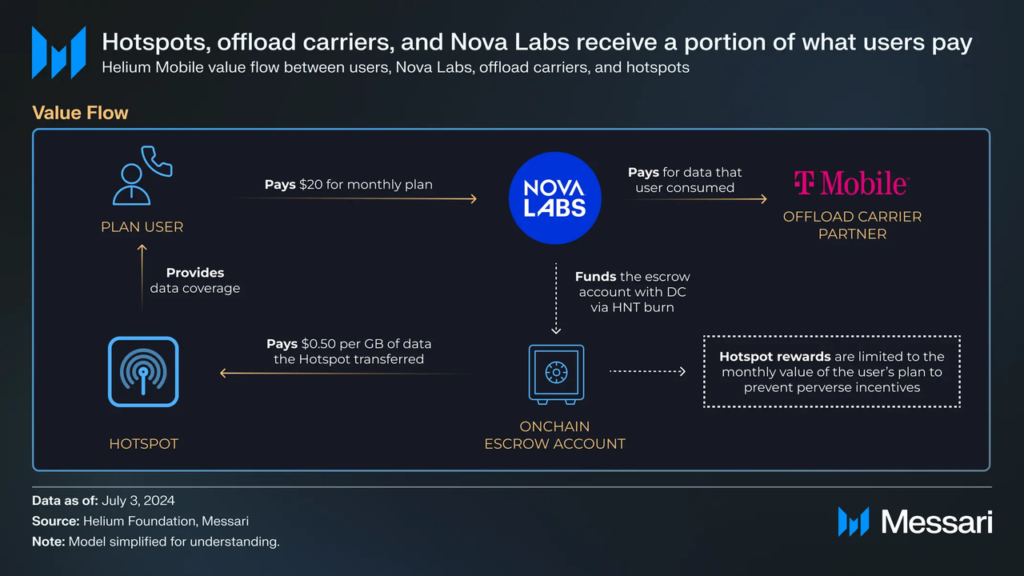
2.2. Pricing Strategy
Initially, Helium Mobile offered various pricing plans, including options with 1GB, 5GB, and unlimited data. The latest plan simplifies pricing with a uniform $20 monthly rate for unlimited data, calls, and texts across the United States.
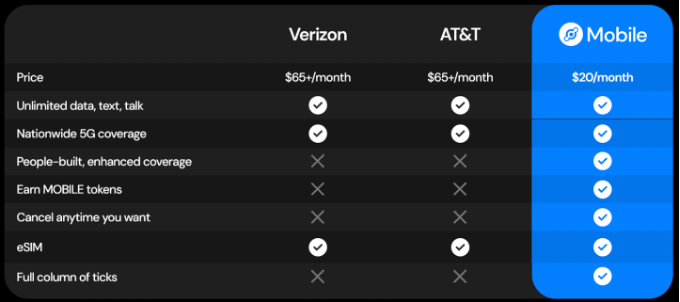
3. Wayru: Bringing Affordable WiFi to Emerging Markets
Wayru is a decentralized wireless network focused on providing affordable internet access in underserved regions. By enabling individuals to become network operators and share WiFi connections, Wayru aims to create a vast network of data transmission points, offering digital access to previously unconnected populations.
Business Model and Tokenization
Wayru’s business model revolves around tokenized segments known as “AirBlocks,” which provide internet connectivity to specific geographic areas. These AirBlocks can be rented and shared, with revenue generated from consumer subscriptions distributed among block owners. The Wayru Network Token ($WRU) underpins all transactions and rewards within the network.
4. Wi-Fi Dabba: Affordable Connectivity for the Indian Market
Wi-Fi Dabba is an India-based project focused on providing cost-effective internet access through decentralized mesh networks. The project offers high-speed broadband at a fraction of traditional costs, aiming to improve connectivity in Indian cities. By installing local mesh networks in urban areas, Wi-Fi Dabba delivers affordable internet solutions that meet the needs of both urban and rural populations in India.
Pricing Model
Wi-Fi Dabba offers a high-speed unlimited broadband service at a very low cost, with pricing as low as $0.01 per GB per day. They also provide a monthly plan for just $10, making it accessible to a wide range of users.
5. Comparison of Decentralized Wireless Networks
Overall, Roam and Helium Mobile concentrate on global markets by offering secure, decentralized networks, while Wayru and Wi-Fi Dabba prioritize underserved regions. Each project employs distinct business models: Roam emphasizes Wi-Fi roaming, Helium focuses on IoT, and Wayru facilitates shared Internet access. However, all of these initiatives encounter difficulties concerning community expansion, adoption, and sustainability in increasingly competitive markets. Larger projects like Roam benefit from robust community support, whereas smaller initiatives like Wayru must enhance their user base to ensure long-term viability.
| Project | Focus | Business Model | Technology | Community & Market | Unique Features |
| Roam | Global WiFi roaming network | Seamless, secure roaming | Uses Web3.0 technology and OpenRoaming™ | Strong community with active global partners and a large Twitter following | Second-generation WiFi router miner available with stable supply |
| Helium Mobile | Decentralized cellular & IoT network | Token rewards for deploying and mapping coverage | Blockchain-based wireless infrastructure | Focused on the Indian market with minimal international presence | Partnered with major telecom operators, offers affordable data plans |
| Wayru | Internet access in underserved areas | Tokenized AirBlocks for revenue sharing | Blockchain-backed WiFi network | Small but growing community, focus on Latin America | Provides decentralized ownership model for network operations |
| Wi-Fi Dabba | Affordable internet for India | Low-cost broadband services | Decentralized mesh networks | Affordable Internet for India | Extremely low-cost data pricing, targeting underdeveloped regions |


